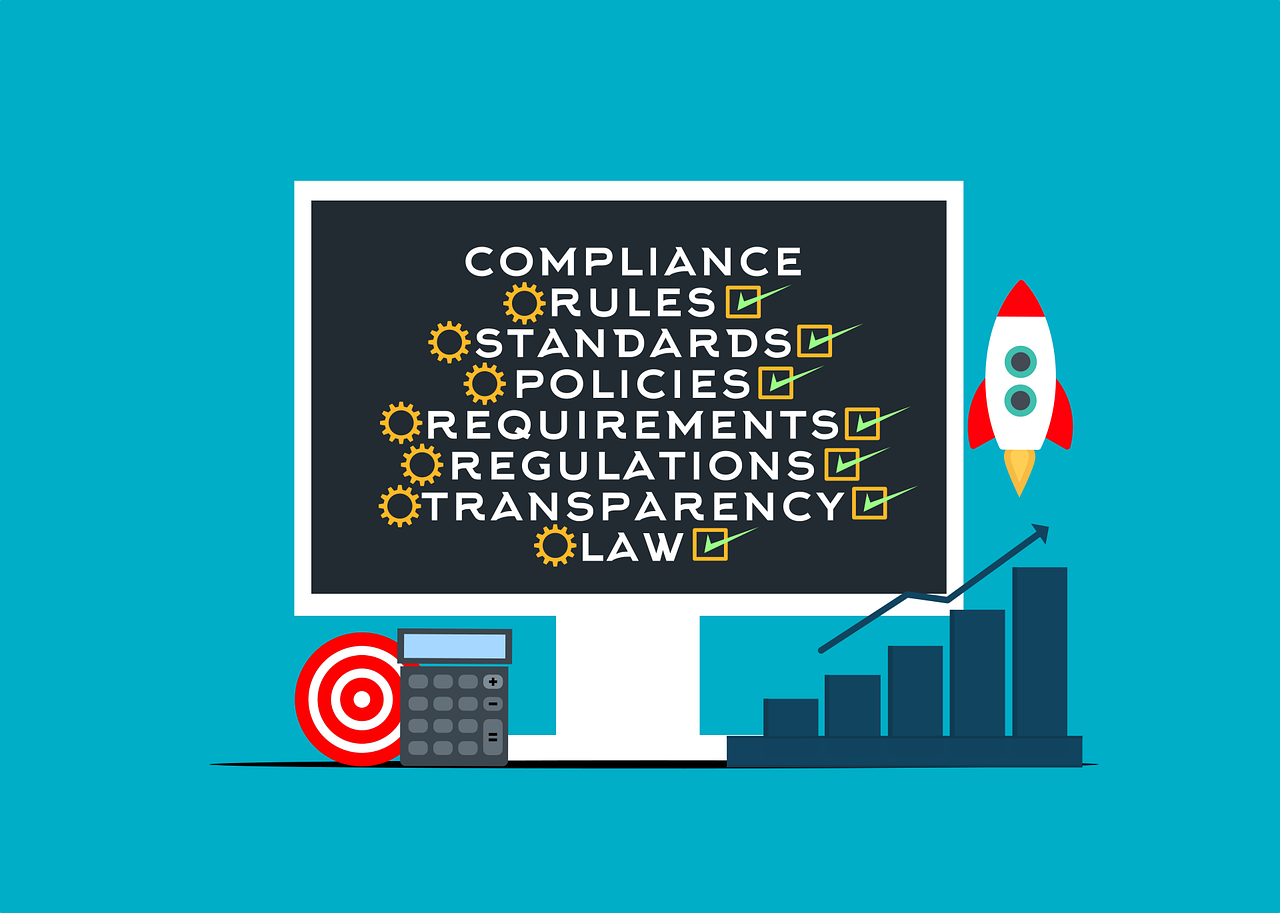Introduction
In the complex and ever-evolving landscape of business and finance, ethical accounting practices serve as the cornerstone of integrity and trust. These practices are not just guidelines; they are the moral compass that guides financial professionals in their crucial role. Ethical accounting practices are not confined to a set of rules but embody a commitment to honesty, transparency, and accountability. In this article, we will explore the significance of ethical accounting practices and how they play a vital role in safeguarding business integrity in the financial world.
Ethical accounting practices are not just a regulatory requirement; they are a reflection of a company’s commitment to upholding its values and principles. By adhering to these practices, businesses can demonstrate their dedication to transparency and ethical conduct, ultimately enhancing their reputation and credibility in the eyes of stakeholders.
At the heart of ethical accounting lies the concept of truthfulness and accuracy in financial reporting. Accountants and financial professionals are tasked with the responsibility of ensuring that financial statements and reports provide a true and fair view of a company’s financial position. This commitment to accuracy extends to all financial transactions, from recording revenues and expenses to disclosing potential risks and liabilities.
One crucial aspect of ethical accounting is independence. Financial professionals must maintain their independence and objectivity, free from any undue influence that could compromise their integrity. This means resisting pressures to manipulate financial data or engage in unethical practices that could artificially inflate a company’s financial performance.
Transparency is another fundamental principle of ethical accounting. It involves providing stakeholders, including shareholders, investors, and regulators, with access to clear and comprehensive financial information. This transparency allows these parties to make informed decisions and assess a company’s financial health accurately.
Ethical accounting practices also encompass accountability. Financial professionals are accountable for their actions and decisions. This includes taking responsibility for errors or discrepancies and rectifying them promptly. It also involves reporting any unethical behavior or financial irregularities they may encounter within an organization.
Furthermore, ethical accounting extends beyond the realm of financial reporting. It encompasses ethical decision-making in various financial scenarios, such as investment choices, tax planning, and resource allocation. These decisions should align with a company’s values and ethical standards, ensuring that financial gains are not pursued at the expense of ethical principles.
In the modern business world, where stakeholders place increasing importance on ethical conduct and social responsibility, adhering to ethical accounting practices is not just a matter of compliance—it’s a strategic advantage. Companies that prioritize ethical accounting not only safeguard their business integrity but also build trust with customers, investors, and partners.
In conclusion, ethical accounting practices are the bedrock of business integrity in the financial world. They encompass honesty, transparency, independence, and accountability, guiding financial professionals in their mission to provide accurate and trustworthy financial information. By upholding these practices, businesses can not only meet regulatory requirements but also enhance their reputation and credibility, ultimately contributing to their long-term success and sustainability.
To expand your knowledge on this subject, make sure to read on at this location: Internal Controls: Definition, Types, and Importance
At the heart of ethical accounting lies the unwavering commitment to honesty and accuracy in financial reporting. Accountants are ethically bound to provide information that is truthful, reliable, and free from misrepresentation. This fundamental principle ensures that businesses present their financial health in an honest light, allowing stakeholders to make informed decisions.
Ethical accounting’s commitment to honesty and accuracy in financial reporting is not just a moral imperative but also a cornerstone of financial transparency and trust. Here’s why this commitment is essential:
Stakeholder Trust: When businesses provide accurate and truthful financial information, stakeholders, including investors, creditors, employees, and customers, can trust the data they receive. This trust is crucial for fostering positive relationships and long-term partnerships.
Informed Decision-Making: Ethical accounting empowers stakeholders to make well-informed decisions. Investors can assess the financial health of a company, creditors can gauge creditworthiness, and employees can have confidence in their job security. This transparency reduces uncertainty and risk in business relationships.
Risk Mitigation: Accurate financial reporting helps identify potential financial risks and challenges early on. Ethical accountants play a vital role in uncovering financial irregularities or warning signs, allowing businesses to take corrective actions and mitigate risks proactively.
Legal Compliance: Ethical accounting ensures compliance with financial reporting laws and regulations. Inaccurate or fraudulent financial reporting can lead to severe legal consequences for individuals and businesses. Ethical accountants prioritize legal compliance to protect their clients and employers from legal liabilities.
Reputation Management: A commitment to honesty and accuracy protects a business’s reputation. In today’s interconnected world, news of financial misconduct or dishonesty spreads quickly, damaging a company’s brand and credibility. Ethical accounting helps safeguard a company’s reputation and market standing.
Investor Confidence: Ethical accounting practices instill confidence in investors, encouraging them to invest capital in businesses. When investors believe that financial reports accurately represent a company’s financial health, they are more likely to provide funding, fueling business growth.
Sustainable Growth: Ethical financial reporting contributes to a company’s long-term sustainability. By addressing financial issues honestly and transparently, businesses can implement effective solutions and strategies for growth and development.
Competitive Advantage: Ethical companies often have a competitive advantage in the market. They attract investors, customers, and talent who prefer to associate with organizations that prioritize ethical behavior and transparency.
Industry and Market Trust: Ethical accounting practices foster trust not only within individual companies but also within entire industries and markets. Trust in financial reporting contributes to the stability and credibility of financial systems.
Ethical Leadership: Ethical accounting sets a positive example for employees and future generations of accountants. It promotes a culture of integrity and ethical behavior within organizations and the accounting profession as a whole.
In summary, the commitment to honesty and accuracy in financial reporting, a core principle of ethical accounting, serves as the foundation for trust, transparency, and responsible financial management in the business world. It is a key driver of informed decision-making, risk mitigation, and sustainable growth for businesses of all sizes and industries.
Should you desire more in-depth information, it’s available for your perusal on this page: Our Code of Ethics | JLL

Ethical accountants prioritize transparency in financial reporting. This means that financial statements and reports must be clear, understandable, and accessible to those who rely on them. Transparency ensures that stakeholders, whether they are shareholders, investors, or the public, have a full view of a company’s financial standing.
Transparency in financial reporting is the cornerstone of ethical accounting practices. Ethical accountants understand that financial statements and reports are not mere documents; they are critical tools that stakeholders use to make informed decisions. Here’s how ethical accountants prioritize transparency in financial reporting and why it matters:
Clear and Understandable Financial Statements: Ethical accountants are committed to creating financial statements that are clear and easy to understand. They avoid jargon, complex terminology, or convoluted accounting methods that can obscure the true financial picture. Clear financial statements enable stakeholders, including non-financial experts, to grasp the company’s financial health without confusion or misinterpretation.
Accessibility to Stakeholders: Ethical accountants ensure that financial reports are readily accessible to all stakeholders who rely on them. This includes shareholders, investors, creditors, regulatory bodies, and the general public where applicable. Timely dissemination of financial information through channels like annual reports, investor presentations, or online platforms promotes transparency and accountability.
Full Disclosure of Financial Information: Transparency means leaving no room for hidden surprises. Ethical accountants practice full disclosure, providing a comprehensive view of the company’s financial position. This includes not only the positive aspects but also potential risks, uncertainties, and contingent liabilities. By disclosing all relevant information, ethical accountants enable stakeholders to make well-informed decisions, reducing the likelihood of surprises that can erode trust.
Consistency in Accounting Practices: Ethical accountants adhere to consistent accounting practices over time. They avoid sudden changes in accounting methods or practices that may artificially inflate or deflate financial results. Consistency fosters trust as stakeholders can rely on the continuity and comparability of financial information.
Adherence to Accounting Standards: Ethical accountants follow established accounting standards, such as Generally Accepted Accounting Principles (GAAP) or International Financial Reporting Standards (IFRS). These standards provide a common framework for financial reporting, ensuring uniformity and comparability among different entities. Compliance with these standards enhances the transparency and reliability of financial statements.
Independent Audits: Ethical accountants support independent audits of financial statements. External auditors, who are impartial third parties, review a company’s financial records and attest to their accuracy. Audited financial statements provide an additional layer of assurance to stakeholders, confirming that the information presented is reliable and free from material misstatements.
Identification and Mitigation of Conflicts of Interest: Ethical accountants diligently identify and address conflicts of interest within the organization that could compromise transparency. They take steps to ensure that financial reporting remains objective and unbiased, even in situations where personal interests may be at play.
Communication with Stakeholders: Ethical accountants engage in transparent and open communication with stakeholders. They are available to answer questions, provide clarifications, and offer insights into the financial data. Effective communication builds trust and helps stakeholders better understand the nuances of financial reporting.
Compliance with Regulatory Requirements: Ethical accountants ensure that the company complies with all regulatory requirements related to financial reporting. Failure to adhere to legal obligations can lead to legal consequences and damage the company’s reputation.
In conclusion, ethical accountants understand that transparency in financial reporting is not an option but a fundamental ethical obligation. By prioritizing clarity, accessibility, and accuracy in financial statements, ethical accountants empower stakeholders to make informed decisions, foster trust, and uphold the integrity of the financial reporting process. Transparency is not only a mark of ethical professionalism but also a key driver of a company’s reputation and credibility in the business world.
You can also read more about this here: Anti-Corruption Ethics and Compliance Handbook for Business …

Ethical accountants maintain independence and objectivity in their work. They must avoid conflicts of interest and refrain from any activity that might compromise their professional judgment. This impartiality guarantees that financial decisions are made in the best interest of the organization and its stakeholders.
Additionally, ethical accountants uphold the highest standards of confidentiality. They handle sensitive financial information with the utmost care and ensure that it remains secure and protected from unauthorized access. This commitment to confidentiality builds trust between the accountant and their clients or employers, fostering a professional relationship based on integrity and reliability.
Furthermore, ethical accountants are dedicated to ongoing professional development. They stay updated on the latest accounting standards, regulations, and industry best practices. This continuous learning ensures that they provide accurate and up-to-date financial information and advice, contributing to the overall success and compliance of the organization they serve.
In summary, ethical accountants serve as guardians of financial integrity, independence, and objectivity within organizations. Their commitment to ethical principles helps maintain trust, transparency, and the responsible management of financial resources, ultimately benefiting both the organization and its stakeholders.
For additional details, consider exploring the related content available here GAO-18-568G, GOVERNMENT AUDITING STANDARDS: 2018 …

Ethical accountants are entrusted with sensitive financial information. Upholding confidentiality is crucial to maintain trust with clients and employers. They must safeguard financial data from unauthorized access or disclosure, ensuring that proprietary information remains secure.
By maintaining confidentiality, accountants demonstrate their professionalism and dedication to protecting the interests of their clients or employers. This trust is essential for clients to be open and honest about their financial situations, allowing accountants to provide the best possible advice and services. It’s a fundamental ethical principle that underpins the accounting profession.
You can also read more about this here: Roles and Importance of Professional Accountants in Business | IFAC

Trust is the currency of the financial world. Ethical accounting practices foster trust within organizations and among external parties. When stakeholders can rely on accurate and transparent financial reporting, they are more likely to have confidence in the business’s operations.
“Building Trust through Ethical Accounting: The Foundation of Financial Credibility
In the intricate web of financial transactions and reporting, trust is the golden thread that weaves together the world of commerce. It’s the currency that fuels investments, underpins business relationships, and ensures the smooth functioning of economies. Ethical accounting practices are the cornerstone upon which this trust is built and sustained, both within organizations and among external parties.
1. Accuracy and Transparency: At the heart of ethical accounting lies the commitment to accuracy and transparency. Ethical accountants diligently record financial transactions and report them truthfully. They do not manipulate figures or engage in practices that obscure financial realities. When financial statements are free from distortions, stakeholders can trust the information presented.
2. Investor Confidence: For investors, whether they are individual shareholders or institutional giants, trust is a critical factor in decision-making. Ethical accounting practices provide investors with the assurance that financial data is reliable. This trust, in turn, encourages investment, enabling businesses to raise capital for growth and expansion.
3. Credibility in Governance: Ethical accounting is an essential element of corporate governance. It ensures that boards of directors, management teams, and auditors are accountable for their actions. Transparent financial reporting holds those in leadership positions responsible for their decisions, fostering trust among employees, shareholders, and the public.
4. Supplier and Customer Relations: Ethical accounting extends beyond the balance sheet. It influences how businesses interact with their suppliers and customers. When suppliers and customers perceive a business as ethically sound, they are more likely to establish long-term relationships, knowing they can trust the business to fulfill its commitments.
5. Regulatory Compliance: Ethical accounting practices align with regulatory requirements. Businesses that adhere to ethical standards not only comply with laws and regulations but often exceed them. This proactive approach to compliance demonstrates a commitment to accountability and integrity, bolstering trust among regulators and the public.
6. Risk Mitigation: Ethical accounting helps identify and mitigate financial risks. By adhering to ethical practices, businesses reduce the likelihood of financial mismanagement, fraud, or other unethical behaviors that can erode trust. Ethical accountants actively seek out potential risks and work to prevent them.
7. Employee Morale: Trust within an organization begins with employees. When employees see that their company adheres to ethical accounting practices, they are more likely to have confidence in the organization’s leadership. This, in turn, fosters higher morale, employee retention, and productivity.
8. Reputation and Brand Value: Ethical accounting is integral to a company’s reputation and brand value. A strong reputation for ethical conduct can be a powerful asset, attracting customers, partners, and top talent. Conversely, unethical behavior can lead to reputational damage that can be challenging to repair.
In conclusion, ethical accounting practices are the bedrock of financial credibility. They not only ensure the accuracy and transparency of financial reporting but also cultivate an environment of trust that permeates every aspect of business operations. Trust is a precious commodity in the financial world, and ethical accounting is the key to its creation and preservation.”
Looking for more insights? You’ll find them right here in our extended coverage: Our Code of Ethics | JLL

Ethical accounting practices help businesses identify and mitigate financial risks. By providing a true picture of the company’s financial health, accountants enable management to make informed decisions that protect the organization from potential pitfalls.
Additionally, ethical accounting practices foster transparency, trust, and credibility with stakeholders, including customers, investors, and regulatory bodies. This trust can enhance the company’s reputation, attract more investors, and create a positive image in the market. Moreover, ethical accounting practices often align with legal requirements and industry standards, reducing the likelihood of legal disputes and regulatory fines. In essence, ethical accounting is not only a moral imperative but also a strategic advantage that can safeguard a company’s financial stability and long-term success.
To delve further into this matter, we encourage you to check out the additional resources provided here: AS 2201: An Audit of Internal Control Over Financial Reporting That …

Ethical accounting goes beyond mere compliance; it enhances a company’s reputation. A business known for its commitment to ethical financial practices is more attractive to investors, clients, and partners. This positive reputation can open doors to new opportunities and partnerships.
Ethical accounting isn’t just about following the rules; it’s about building trust. When a company consistently demonstrates ethical financial practices, it sends a powerful message to stakeholders. This reputation for integrity can lead to increased investor confidence, stronger client relationships, and more collaborative partnerships. In a world where trust is invaluable, ethical accounting is a strategic advantage that can drive long-term success.
You can also read more about this here: Code of Business Conduct and Ethics

Ethical accounting practices also ensure compliance with legal and regulatory requirements. By adhering to ethical standards, businesses reduce the risk of legal issues and penalties that can damage their reputation and financial stability.
“Ethical accounting practices serve as a safeguard against legal and regulatory pitfalls, benefiting businesses in several crucial ways:
Compliance Assurance: Ethical accounting practices inherently align with legal and regulatory requirements. Accountants who uphold ethical standards are more likely to stay updated on evolving laws and regulations, ensuring that their clients or employers remain compliant. This proactive approach minimizes the risk of legal violations.
Risk Mitigation: Legal issues and regulatory violations can have far-reaching consequences, from hefty fines to reputational damage. Ethical accounting practices include thorough risk assessments and internal controls to prevent and detect financial irregularities. By identifying potential compliance risks early, businesses can take corrective actions to avoid costly legal entanglements.
Financial Stability: Legal troubles can strain a company’s financial resources. Fines, penalties, and legal fees can erode profits and jeopardize financial stability. Ethical accounting practices help maintain financial transparency and accuracy, reducing the likelihood of financial mismanagement that could lead to legal problems.
Reputation Protection: A tarnished reputation can be more damaging than any financial penalty. Ethical accounting practices bolster a company’s reputation for integrity and reliability. Clients, investors, and stakeholders are more likely to trust and engage with businesses that demonstrate a commitment to ethical financial reporting.
Stakeholder Confidence: Ethical accounting practices instill confidence in stakeholders, including shareholders, creditors, and regulatory bodies. When stakeholders trust that a business is adhering to ethical standards, they are more likely to invest, lend, or collaborate with that entity.
Transparency: Ethical accountants prioritize transparency in financial reporting. They provide clear, accurate, and complete information, making it easier for regulators to assess compliance. Transparent reporting also fosters trust among stakeholders, as they can readily understand a company’s financial health and compliance status.
Legal Counsel Collaboration: Ethical accountants often work closely with legal counsel to address complex financial and compliance issues. This collaboration ensures that financial and legal aspects are aligned, reducing the likelihood of missteps or oversights that could lead to legal complications.
Proactive Problem-Solving: Ethical accountants approach financial challenges and potential compliance issues proactively. They identify areas of concern, propose solutions, and implement controls to prevent problems from arising in the first place. This proactive stance minimizes the need for legal intervention.
Ethical Leadership: Ethical accounting practices start at the top. When business leaders prioritize ethics and compliance, it sets a positive tone throughout the organization. Ethical leadership encourages employees at all levels to make ethical choices and adhere to legal requirements.
In summary, ethical accounting practices serve as a shield against legal and regulatory risks, preserving a business’s financial stability, reputation, and stakeholder trust. By integrating ethics into financial management, businesses not only minimize legal entanglements but also foster a culture of integrity and compliance that promotes long-term success.”
Should you desire more in-depth information, it’s available for your perusal on this page: Internal Controls: Definition, Types, and Importance

Conclusion
Ethical accounting practices are not just a moral imperative; they are the bedrock upon which business integrity is built. In an era where financial decisions have far-reaching consequences, ethical accountants play a pivotal role in safeguarding the financial world’s credibility and trustworthiness. By upholding principles such as honesty, transparency, and accountability, ethical accountants not only protect their organizations but also contribute to a more transparent and trustworthy financial ecosystem. Ultimately, the commitment to ethical accounting practices is an investment in the long-term success and integrity of any business in the financial world.
Don’t stop here; you can continue your exploration by following this link for more details: AS 2201: An Audit of Internal Control Over Financial Reporting That …
More links
For additional details, consider exploring the related content available here Internal Controls: Definition, Types, and Importance
